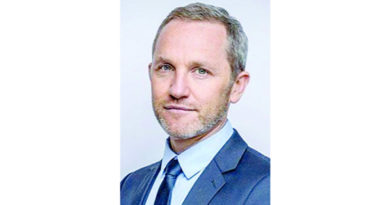Dramatic renewal in Angola
By Mark Michael
IN EARLY DECEMBER the Anglican Diocese of Angola was formally inaugurated in Luanda, the national capital, by the Most Rev. Thabo Makgoba, primate of the Anglican Church of Southern Africa. Makgoba also installed André Soares as diocesan bishop and laid the foundation stone of St. Andrew’s Cathedral.
“What an experience and enriching time. What a joy!” Makgoba said. “We inaugurated a fully-fledged diocese and installed Bishop André as diocesan.”
Soares has served the region as a missionary bishop since 2003, and the church currently has 63 parishes and about 58,000 members. The Anglican Church of Southern Africa, based in Johannesburg, also has congregations in South Africa, Lesotho, Swaziland (Eswatini), Namibia and St. Helena.
These events are a milestone in the remarkable story of Angolan Anglicanism’s unusual beginnings and dramatic renewal. Anglican mission work in Angola was begun by Archibald Patterson, a Church of England layman from Liverpool. Inspired by the 1910 Edinburgh Missionary Conference and its watchword of “The evangelization of this world in this generation,” 21-year old Patterson set off for Africa. He lacked formal theological training and had no connection to the existing Anglican mission societies, relying solely on support from his home parish.
In 1925, with the cooperation of local chiefs, Patterson established the North Angola Mission in Uige, in what was then a Portuguese colony. He served in the region for 36 years, training local people as pastors and teachers to assist him in the work. The North Angola Mission built schools and churches, and operated a large coffee farm, which allowed the mission to be mostly self-supporting. Patterson personally baptized thousands of Angolans, and trained them in the use of a Portuguese translation of the Book of Common Prayer.
In 1961, during the beginning of Angola’s war of independence, Patterson and his wife were expelled from the country, leaving behind about 300 churches and 60,000 members. Anglican church leaders became targets during the 13-year independence struggle. Numerous pastors were executed by rebels and others fled to Congo. Alexandre Domingos, who had worked under Patterson as a local pastor, tried singlehandedly to keep the congregations united and firm in their faith.
Gradually, most of the churches descended from the North Angola Mission were merged with congregations founded by the Swiss Reformed Church to form the Evangelical Reformed Church of Angola. Despite minimal contact with the broader Anglican world, a group of these churches, led by Domingos, still thought of themselves as Anglicans. On a final visit to his disciples in 1972, Patterson urged them to develop connections with Anglicans outside Angola to ensure a more stable future.
In 1985, Domingos came to study English at Selly Oak, Birmingham, an ecumenical mission training centre. To the surprise of his hosts, he announced that he was an Angolan Anglican. He was soon connected with the United Society for the Propagation of the Gospel (USPG), an Anglican mission society extensively engaged in Southern and Central Africa. USPG connected Domingos with Dinis Sengulane, Bishop of Lembobo in Mozambique, another former Portuguese colony.
Bishop Sengulane visited Angola in 1990, and found about 10,000 Anglicans, mostly living in great poverty, under the leadership of local pastors. He ordained Domingos to the priesthood, and arranged for a group of pastors to study at the Anglican seminary at Maputo, in his diocese. André Soares, a young leader who had been baptized by Patterson shortly before his departure from Angola, was among them. Angola was designated as an archdeaconry of the Diocese of Lembobo, even though the two regions were about 4000 miles apart, a 45-hour drive.
Soares succeeded Domingos as archdeacon in 1993, and was later consecrated as a missionary bishop by the Anglican Church of Southern Africa. USPG, Angola’s partner diocese of London, and MANNA (The Mozambique and Angola Anglican Association) have supported Angola’s Anglicans in building churches, training clergy, and establishing parish-based ministries to people suffering from HIV/AIDS.
The church has also been a voice for reconciliation in a nation still reeling from nearly forty years of internal conflict. A televised Anglican service during the 27-year civil war’s final months in 2002 brought together former enemies and resulted in requests from various parts of the country for the founding of Anglican churches.
Since the first Anglican ordinations in 1990, the church has grown more than fivefold, and has spread throughout the country. The Rev. Maria Domingos, Angola’s only female priest, told ACNS that the ministry of evangelism had not been easy:
“This is a significant challenge that has required hard work and dedication, both on the part of local priests and local evangelism groups, often working in remote areas without transportation. But we have seen growth, with the creation of many new congregations.” TAP
–The Living Church. Used with permission.




